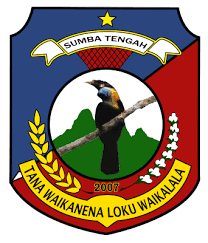Kopernik Solutions provided a sub-grant to a trusted partner organisation who is implementing this project.
We will conduct nutrition-sensitive agriculture training and education to initiate home gardening in order to improve household nutrition intake and reduce stunting prevalence.
THE PROBLEM
On our first stunting prevention initiative in Daha Elu Village, Central Sumba, East Nusa Tenggara, we learned that households with pregnant mothers and children under 2 years old were consuming primarily rice, corn, and roots - starchy foods that are generally low in vitamins, protein, and minerals. This shows a gap in nutrition intake and has become one of the drivers of high stunting prevalence in Daha Elu where 56 percent of children under 2 years old are reported stunted. This low dietary diversity in the village is a consequence of limited knowledge about locally available food that is also nutritious.
Nutrient-rich foods like Moringa have already been provided as supplementary feeding for children at the integrated health post (Posyandu), however many families don’t yet have enough knowledge about Moringa’s benefit or how to plant it.
THE SOLUTION
Hidden hunger, macro and micronutrient deficiencies, occur in individuals who consume sufficient total energy per day but get insufficient nutrition. Thus, this project will focus on nutrition-sensitive agriculture training and education to improve the dietary habits of households with pregnant mothers and children under 2 years old. The training will also be provided to additional households who are interested in growing Moringa, especially households who have children under 5 years old.
Kopernik will collaborate closely with the Women’s Empowerment Group (PKK) of Daha Elu village to establish household gardens in households that are committed to the initiative. Kopernik will provide Moringa seedlings which are rich-nutritious vegetables and thrive in areas prone to drought. Training and technical assistance, will then be provided by a Moringa expert.
Households are required to participate in a nutrition education training before receiving the Moringa seedlings. Kopernik will partner with the Health Department in delivering the training, which includes an introduction to nutritious local food, dietary energy supply, and Moringa benefits and preservation. An interactive poster will be developed as a tool to deliver the information.
We will also distribute water filters to some households who have not received the water filters in the previous phase of this project to provide them access to clean drinking water.
THE EXPECTED IMPACT
With training and the provision of Moringa seedlings, we expect to see an increase in household’s knowledge about nutritious food, higher spending in nutritious food and consistent practice of moringa plantation.
To sustain the impact, we expect an improved in the skills and knowledge of PKK members and established commitment from village government to invest more in home gardening as an effort to prevent stunting.
PROJECT COST
Solution & Project Implementation
Costs associated with the purchase of the solutions tested and project coordination
$7,093
Monitoring & Evaluation
Costs associated with data collection, analysis and reporting
$1,103
Administration Fee
Cost of transferring payments internationally, processing online donations (5%) and a contribution to Kopernik's operational costs (15%)
$1,620
Total $9,816
Kopernik Solutions provided a sub-grant to a trusted partner organisation who is implementing this project.



